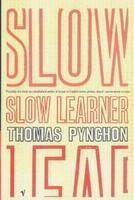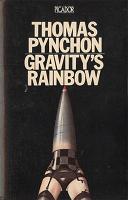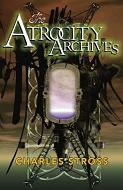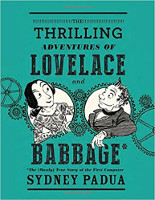 This is a repost of an old review, originally published on the now-defunct Diversebooks site.
This is a repost of an old review, originally published on the now-defunct Diversebooks site.
I’ve decided to have a go at my pile of “Culture” novels by Iain M. Banks, and decided to start with the first (I know, completely novel idea), Consider Phlebas, even if it’s a bit on the old side meanwhile.
The book, like other books by Iain (M) Banks, is named after T.S. Elliot; in this case after a quote from “The Wasteland, IV”:
Gentile or Jew
O you who turn the wheel and look to windward,
Consider Phlebas, who was once handsome and tall as you.
At the start of the book we find the Hero (ok, Protagonist…), Bora Horza Gobuchul (short Horza most of the time) in a sticky situation. He has been impersonating, in his ability as a Changer (see below), the Outworld Minister Egratin, in the Gerontocracy of Sorpen, and failed in his mission. For this (the impersonation, not the failure) he is to die, in a rather ingenious (and very Banks) way. No, I won’t tell you. Main reason for his failure is the Cuture “Special Circumstances” agent Joboal-Rabaroansa Perostek Alseyn Balveda dam T’seif (mercifully usually Perostek or Balveda…), who saw straight through him.
Horza himself is allied with the Idirans, a vaguely humanoid, three-legged, religious race; fighting an all-out war (up to and including blowing up stars and such) with the Culture, a messy conglomerate of humans, post-humans, other races, machines and more. During one encounter of this war the Mind of a ship (think central computer, AI, and then some) abandoned ship, and hid on Schar’s World, one of the designated ‘Planet of the Dead’ (in a nutshell: ex-homeworlds of races that didn’t make it and killed themselves off), protected and isolated by the immaterial Dra’Azon (highly evolved, very powerful, neither side can afford to piss them off!). Horza is the man the Idirans want to go after it.
Under way he signs up on a Privateer, the “Clear Air Turbulence”, has many an adventures (no kidding), and finally, with the rest of the Privateer’s crew, ends of on Schar’s World (or, rather, in the command tunnel labyrinths below it) for the final showdown, which occupies the full final third of the book.
The concepts in the story are fairly run-of-the mill Space Opera, like Hyperspace and the related FTL travel, the various weapons, the large-scale war, the humanoid-type aliens etc. Two things stood out for me. Firstly there are the Changers like Horza, a race who can alter its look and manners at will, to look like someone else (only distinguishable on a molecular level), or to get out of tricky situation like being tied up (small wrists slip from shackles and such). They also have a raft of other biological tricks up their sleeve.
The other concept is the one that holds the series together, the Culture. I leave the word to Thomas Gramstad who wrote a paper on it (no, really!):
The Culture is a machine-symbiotic human society. There are artificial intelligences and other mechanical persons enjoying individual rights. Biological persons (humans) are enhanced genetically and biotechnologically, they have a lot of extra glands and add-ons that expand volitional control of body functions and mind states. This includes the ability to change sex back and forth by will, or to have both sexes (intersexuality) and no sex. The Culture is an abundant society, with no scarcity economy. One Culture adage is, Money is a sign of poverty, meaning that money only has a function in a scarcity economy, and therefore its existence betrays a pre-abundant (poor) society. The Culture is a stateless society, continually expanding its size and accumulated knowledge. Erik Vasaasen has described 'The Culture' as Star Trek without the Prime Directive. When the Contact branch of the Culture encounters dictatorships or religious-militaristic civilizations, or other societies that violate the Cultures code and sense of human dignity, liberty and individual rights, it neutralizes, subverts, educates and transforms them.
I don’t think I need to introduce the author, Iain M Banks – the only thing that doesn’t live up to his fame in the SF community is the lack of Awards he’s won so far (one BSFA, plus a few nominations, if my research is correct).
The book itself is the first in the (so far) series of 7 books (one of them short stories). It’s a good read, has, in most parts, a good drive, and is occasionally really rather entertaining. On the other hand it has its lengths, a lot of the story elements are dwelled on for too long in my opinion (several of Horza’s adventures read like short SF Pulp stories in themselves), and the overall feeling of the book is that the story goes nowhere fast. Personally I think that Banks has learned a lot in the years since, at least telling form his latest SF Novel, The Algebraist.
The book contains two classic ‘gross’ Banks parts, like most of his books seem to contain one or two... Especially one of them is/was bad enough to turn an acquaintance of mine off his oeuvre for good (I didn’t think it was that bad. Just not necessary for the story).
Other than these flaws I’d say I can recommend the book, it’s above-standard SF fare, and worth reading. I’ll let you know if I think the later Culture novels are better as soon as I get around to reading them…
More Iain M. Banks
Title: Consider Phlebas
Series: Culture
Series Number: s
Author: Iain M Banks
Reviewer: Markus
Reviewer URL: http://skating.thierstein.net
Publisher: Orbit
Publisher URL: http://www.orbitbooks.com
Publication Date: 1988
Review Date: 19 Oct 2006
ISBN: 1857231384
Price: UKP7.99
Pages: 471
Format: Paperback
Topic: Space Opera
Topic: SF













